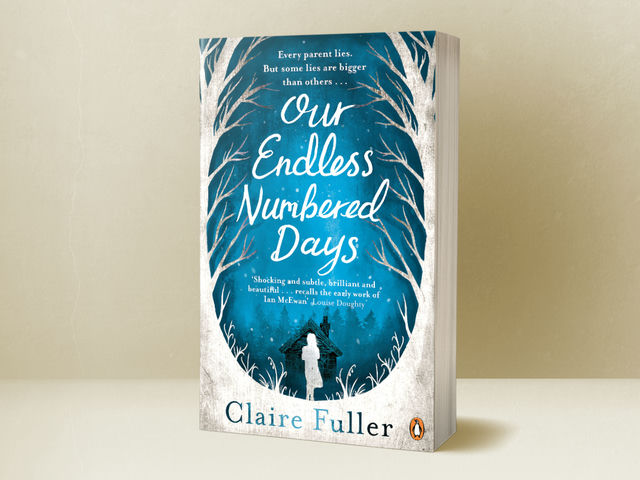Our Endless Numbered Days
Claire Fuller, 2015

It’s tricky to categorise Our Endless Numbered Days, the debut novel by Claire Fuller. It’s a mystery, a survival adventure, a story of a broken family and a tale of human frailty. But it’s also a deeply unsettling account of the abuse of responsibility by the people we trust to care for us. From that perspective, it’s a bleak novel and not one that I could really enjoy.
The story is narrated in first person by Peggy Hillcoat, the daughter of famed concert pianist Ute Bischoff and her young husband James Hillcoat. Peggy recalls her story in two different times: in the mid 1970s from aged 8 and in 1985 aged 17 when she returns from her ordeal. And it’s her ordeal that’s at the heart of this story.
Peggy’s father James is a survivalist, a ‘Retreater’, one of a group of friends who make plans on how to survive any number of imagined future apocalypses. Forever building a fallout shelter in his cellar, he’s spent Peggy’s childhood teaching her how to survive should the world one day end. One day after a heated argument with another Retreater, he leaves the family home with Peggy. He tells her that they’re going on holiday. They travel through Europe to find a survivalist hut James believes will be a safe haven. Safe from what, we’re never quite sure, but it’s clear something is wrong with James’s view of the world.
The bulk of the novel deals with the nine years spent living in this hut and off the land. Peggy grows into a young woman as her father becomes increasingly disturbed. From early in their self imposed isolation, James tells Peggy that the rest of the world has gone and they are the only people left alive. Believing him completely, Peggy becomes his protegé, learning how to live off the land – and nearly dying of starvation in the process.
While this story unfolds, Peggy also recounts a second story, switching to present day 1985, where she tries to make sense of what happened. She gives us insights into her ordeal that begin to reveal twisted motivations. You begin to wonder what is real and whether or not Peggy is a reliable narrator. And if she isn’t, what happened to her in those years to make us disbelieve her?
I was required to suspend a fair amount of disbelief to get through this novel. The overall ‘survivalist’ premise is just a bit too far fetched. Some strands of the story didn’t really work for me, and some details were glossed over or ignored completely, particularly aspects of Peggy’s journey into adulthood. But maybe that was the point.
This is a disturbing exploration of abuse in a dysfunctional family. Yet despite the awful revelations towards the end, I felt quite detached. I should have been moved to tears but I wasn’t. I think the author spent far too long getting to the point: only at the end did I really understand the truth of Peggy’s story and I was disturbed by it.
I can’t recommend this book: the underlying message is dark and sordid and utterly misrepresented by the blurb. I don’t usually bother reviewing books that I don’t enjoy, but this time I’ve made an exception as I feel neither the author nor the publisher have been honest with us.